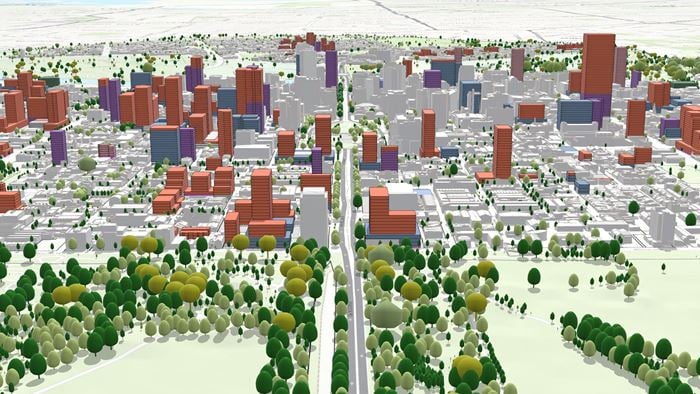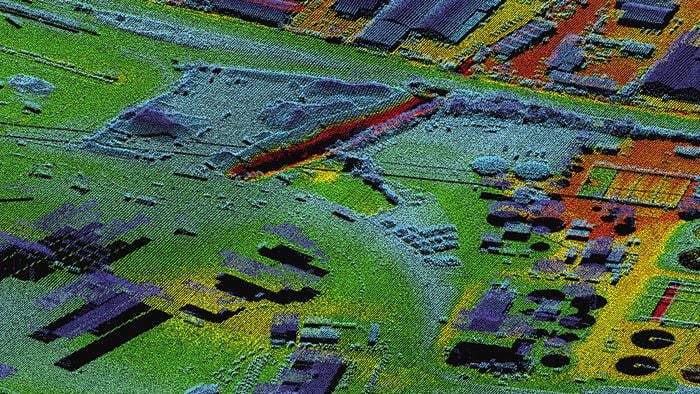Some of the largest data custodians are governments and their agencies. The value of their data is often unknown or unrealised and the process of opening data can be challenging.
Arup has – and is – helping to realise the benefits of this data for governments (national, state, provincial and local), their departments, multilateral agencies, authorities, satellites, private firms and universities.

Collaboration is working together for a common purpose. By working together, we can realise the benefits of all types and forms of data, even data that is yet to be opened up to public access.
Three major classes of benefits we see in government open data are in informing existing policy, developing innovative new policy and opening up commercial opportunities which benefit society
Open data can inform existing policy and government operations by identifying opportunities to improve efficiency, effectiveness or equity. A longstanding example of the use of open data is the Australian Bureau of Meteorology’s weather and water datasets, which are accessible online, and used to inform everything from local engineering standards through to the direction of Australian Government drought relief packages in rural areas. The accessibility of open data to external parties enables evidence-informed feedback to government about the operation of a given policy.
Open data assists to develop innovative policy by identifying new or alternative avenues for government operation. The Australian Government has attempted to foster this through facilitating ‘GovHack’ days, where policy challenges are set and volunteer teams work together to generate new and alternative programs and measures to address the challenge. The 2015 GovHack had challenges such as ‘best disaster mitigation hack’ and utilised the open data of over twenty Australian Government agencies and departments.

Commercial opportunities arise from open data, and these can generate much social benefit. An example is the provision of realtime public transport data to support smart travel apps. Smart travel apps enable people to more effectively use public transport, providing greater societal benefits from active transport and better use of public resources. The developers of apps receive a commercial return.
Open data is an uncomfortable fit with government culture. Public service codes of conduct clearly debar the improper use of information, and norms of behaviour lean strongly towards risk and harm minimisation. Governments have access to privileged information and the sometimes vague process of opening data challenges deeply ingrained cultures and norms.
Making use of large datasets, be they open or not, can be a practical challenge for governments and businesses. Resource and capacity constraints within their organisations can limit the uptake and use of data to inform policy and business. Furthermore, realising value from data often requires technical training and conceptual knowledge to use and interpret the results of analysis.
Providing open data does not in itself result in benefits realisation. Use and analysis of data may need to be directed to generate value. GovHack days are undertaken on a volunteer basis and are resource intensive to organise.
It’s vital to collaborate on open data, and yet to be opened data, in ways which address the cultural, practical and beneficial outcomes.
Cultural challenges can be overcome by structuring collaboration in ways which observe privacy, confidentiality and information treatment standards. In many projects we provided advice and undertook analysis on a confidential basis on data which is yet to be opened. At times this included in situ work in client office locations.
Substantial depth of technical skill and conceptual knowledge are essential elements when interrogating large datasets. When data analysis generates results, we can explain and interpret these based on conceptual and technical background to great benefit to the data custodian.

The opening of government data is a continuing trend.
One of the key tools of governments is their position as a central node in society. Through their central position, governments absorb and access information from different sources in a multitude of ways. Using the information for public benefit, governments make evidence informed policy.
Governments are resource constrained. The information received by governments far exceeds their analytical ability. The provision of open data allows parties outside of government to analyse data, to identify opportunities, trends and change. Political discourse supports open data, as demonstrated by the Cameron Government’s and Turnbull Government’s respective support and initiatives.
Yet the provision and use of open data presents challenges to governments. Collaboration with skilled and technical specialists provides a way to realise the benefits of open data, as well as data that is yet to be opened.
 ;
;





